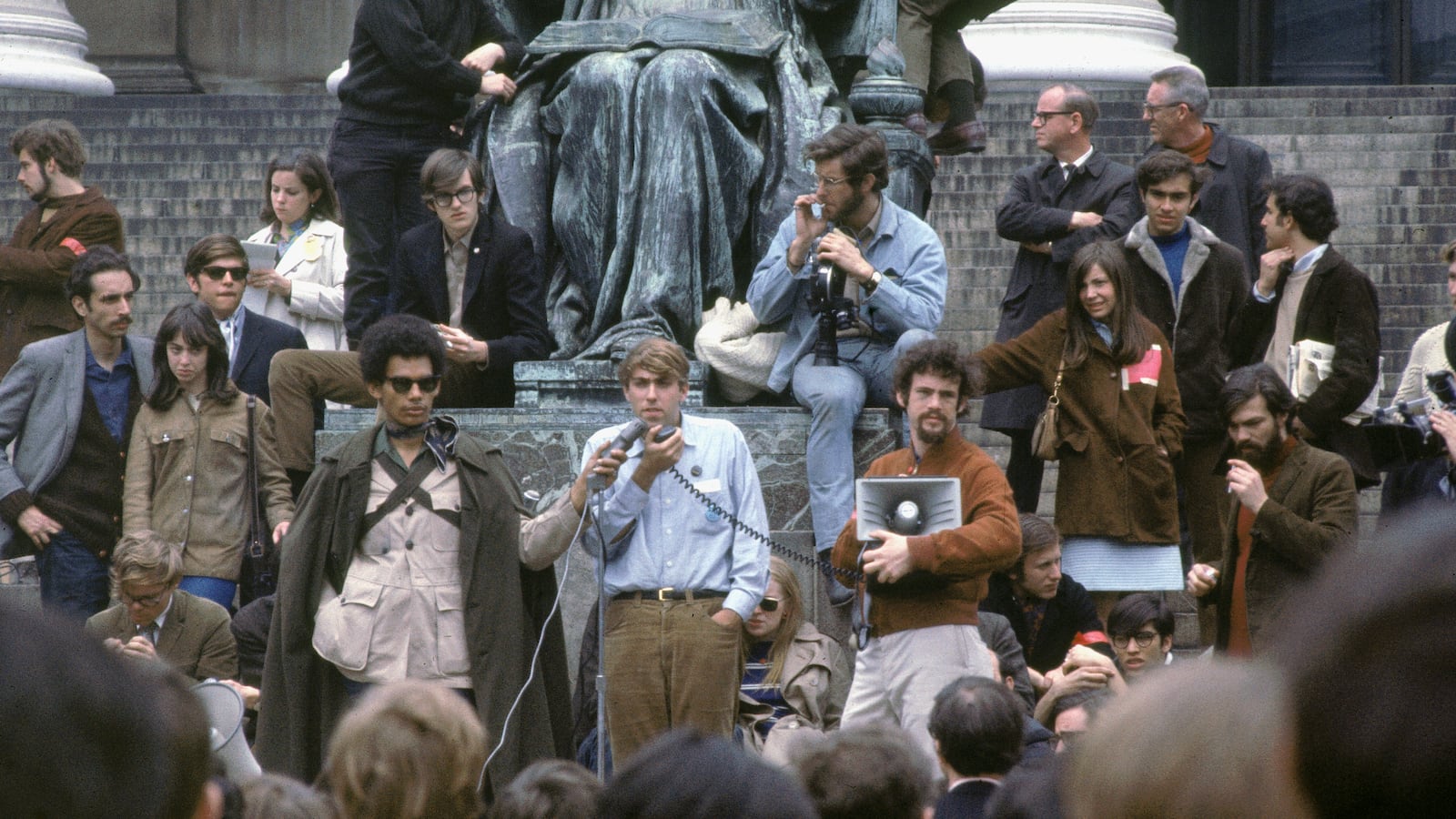The war is in Gaza, not Vietnam, as it was when Mark Rudd became the iconic leader of the protests that rocked Columbia University more than a half century ago.
But 76-year-old Rudd says the anti-war protesters who are now encamped on a lawn in the heart of the Columbia campus share an essential motivation with those of his time.
“They’re pretty much the same as we were,” Rudd told The Daily Beast. “The basic impetus of the students, I think it’s not that complicated. It’s that they see a moral tragedy and moral crime going on, and they want to try to do something to stop it.”
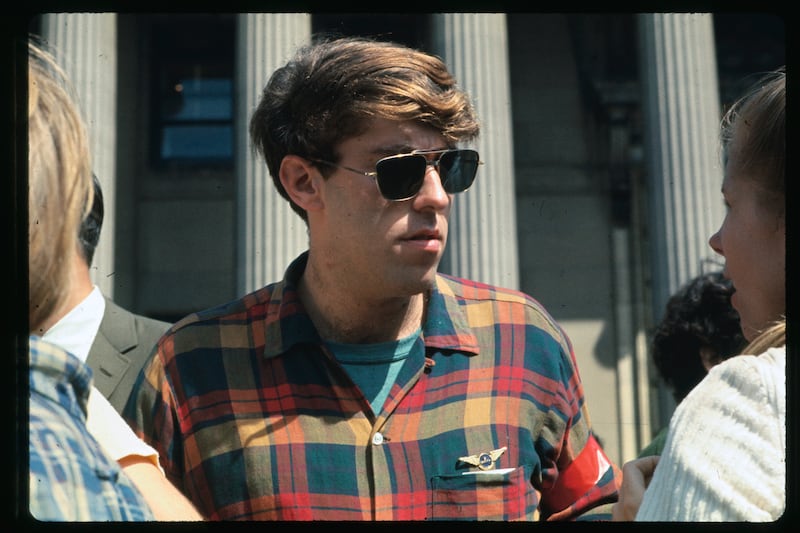
Mark Rudd, after being suspended from Columbia in 1968.
Bettmann/GettyRudd says that in 1968, he and his fellow activists were driven to protest such horrors as American carpet bombing and Agent Orange defoliation.
As Rudd sees it, the current protesters feel compelled to do what they can to stop what they view as an Israeli war against a civilian population.
“For me, it’s the most normal thing in the world to look at the murder of 34,000 people and the displacement of close to 2 million in Gaza and say, ‘Hey, stop!” he said.
He has had little contact with the current protesters beyond a teach-in over Zoom that was hampered because he is hard of hearing. But he did notice there are more women leaders than there were when he was a junior and head of Students for a Democratic Society. That, he said, means fewer “guys trying to be macho.”
“There’s less potential for violence,” he said. “These protesters are more careful not to blur the line between violence and non-violence. As far as I know, they are completely non-violent.”
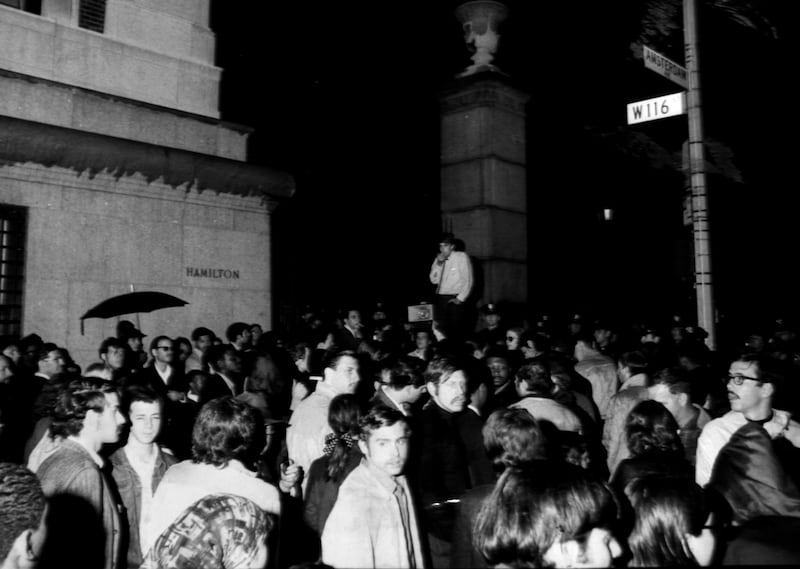
Mark Rudd speaks to a crowd on Columbia’s campus in 1968.
Hyman Rothman/NY Daily News Archive via Getty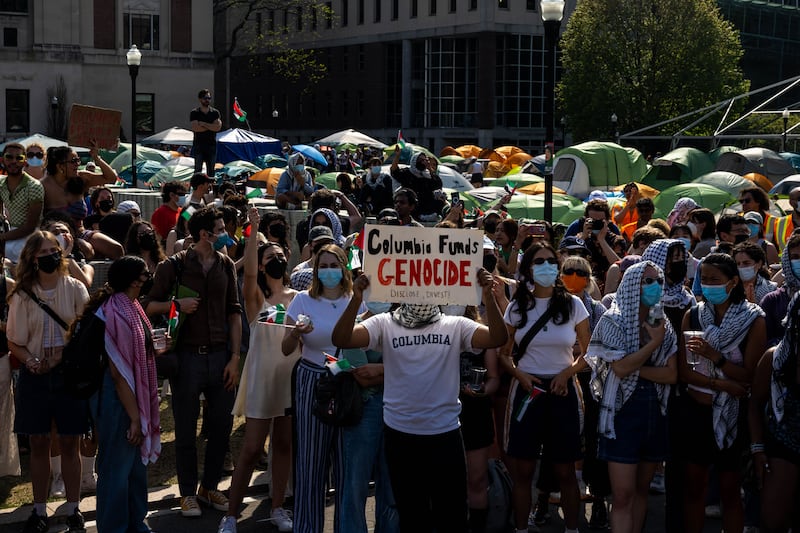
Demonstrators at Columbia University picket around the encampment established in support of Palestinians in Gaza on April 29, 2024.
Alex Kent/GettyIn his time as a macho leader, Rudd moved from campus protests to co–founding the Weather Underground to “bring the war home.” The Weathermen staged “days of rage,” smashing store windows as they rampaged through a business district in Chicago. They bombed the U.S. Capitol and the Pentagon. Three of them were killed when a bomb they were building in a Greenwich Village townhouse exploded.
But Rudd decided after a year that violence was not going to achieve anything and he became what he once termed “a total pacifist for completely practical reasons.” He spent seven years underground before turning himself in and serving a brief jail term. He has since moved to Albuquerque, New Mexico, where he taught mathematics at a community college.
From there, the macho guy turned pragmatic pacifist has watched the Gaza protests unfold at his alma mater. The demonstrators call out “NYPD KKK, IDF all the same” and “Shame on you! Shame on you!” But that is relatively mild compared to the Vietnam era.
“They don't have the violent rhetoric we had, like calling the cops pigs and ‘Up against the wall, motherfucker,’ that kind of craziness,” he said. “I think they’re a lot more careful. I think they’re smarter.”
There had been unfortunate exceptions, such as a student who declared on video “Zionists don’t deserve to live.”
And, because the protesters oppose Israel’s military actions in Gaza and call for a free Palestine, they have been accused of being antisemites who are too quick to overlook the horror that Hamas perpetrated on Oct. 7.
“This gets complicated,” Rudd allowed. “I’m Jewish, and I was raised to believe like most American Jews [that] my identity as a Jew is based in some manner on Israel. It took me a long time to get over that.”
He went on to say, “I understand that with people who are committed to that identity, you’re not going to shake them.”
But he feels that “the situation’s well beyond that. It’s mass murder. It's got to stop.”
He contends it is possible to oppose the war in Gaza and still support Israel.
“In fact, many Israelis say, ‘Stop already! Get the hostages back,’” he said.
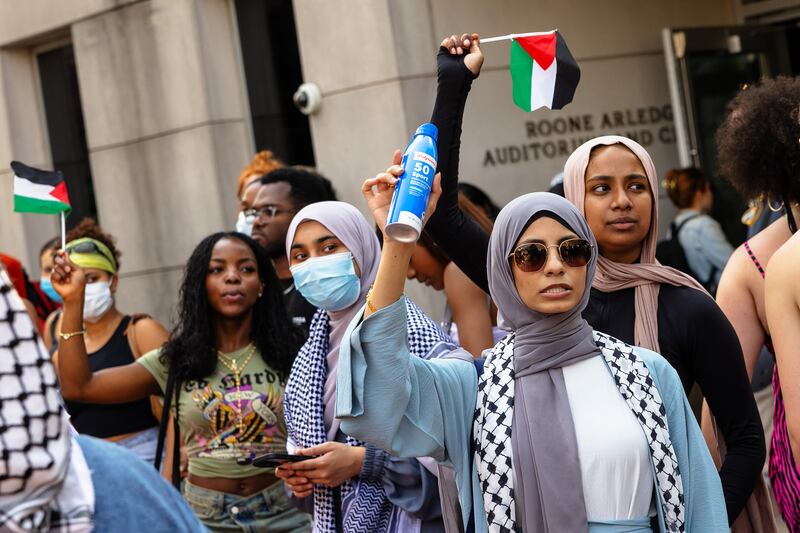
Rudd says women have a bigger role in today’s protests.
Michael M. Santiago/GettyOn April 18, University President Minouche Shafik asked the NYPD to clear the “Gaza Solidarity Encampment” the protesters had established. Police arrested 108 people, but there were no reported injuries—compared to 700 who were arrested and more than 100 injured when police cleared protesters from the campus in 1968.
The current protesters simply re-established the encampment, and the university announced that any students who did not leave by 2 p.m. Monday faced suspension. Dozens remained past the deadline and a group of faculty members in orange safety vests formed a barrier to protect the the right to protest.
On Monday evening, the Ivy League school began suspending students.
Will the protests have been worth that price? From New Mexico, Rudd expressed doubt that the Gaza protests at colleges across the nation will lead to a movement on the scale of the one that grew out of opposition to the Vietnam War.
“But I think we’ll have a lot of people learning a lot about the world,” he said. “That’s another thing about student protest is—it’s a form of education for them and for us.”

